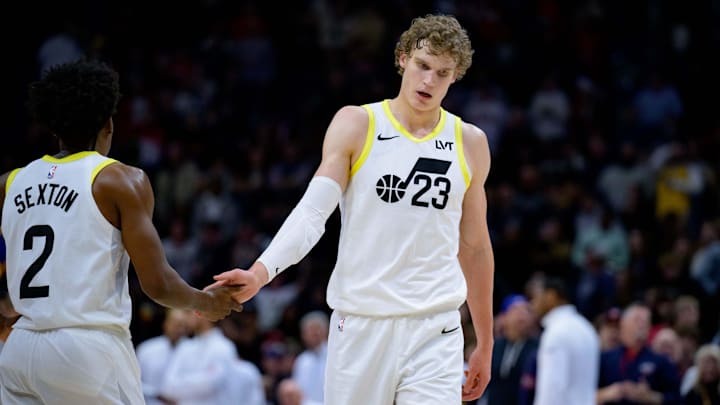3 Regrettable Jazz Decisions That Have Hindered the Rebuild

You win some and lose some. I believe most can agree that the Utah Jazz's decision to part ways with Donovan Mitchell and Rudy Gobert and start a rebuild was the correct call. However, since the start of Utah's makeover, some decisions have performed well, while others have not.
In hindsight, it's easy to be critical, and that's exactly what we're going to do. Let's take a look at three decisions that Utah regrets as we approach the third season ot its rebuild.
Trading for John Collins
Taking a swing at Collins felt like a good move at the time. Here was a player just two years removed from being a significant contributor on a team that made the Eastern Conference Finals. Also, his situation with the Atlanta Hawks felt similar to Lauri Markkanen's with the Cleveland Cavaliers before he reached All-Star status after arriving in Salt Lake City.
Collins' first year in Utah was a mixed bag. He posted a respectable stat line of 15.1 points and 8.5 rebounds per game but never made the impact Jazz fans had hoped for. So, the problem in the future isn't his play on the court but the length and amount left on his contract.
Utah is on the hook for 53 million dollars over the next two years, and trading the seven-year veteran doesn't feel likely until his contract gets close to expiring. This doesn't bode well for a team that should be looking to bottom out in 2024-25 for a top pick in the 2025 NBA draft that's projected to be loaded with talent.
Collins doesn't have a future in Salt Lake City, and until he's traded, he'll be blocking a path for some of the younger players to develop. This situation is not ideal in a rebuilding process or for a team entering the Cooper Flagg sweepstakes.
Signing Jordan Clarkson to a 3-Year Contract
Re-signing Clarkson wasn't a bad move at the time and the way his contract was structured it made sense. Clarkson got a three-year deal in which the lion share of the money was paid in the first year. This gave Clarkson a well deserved big pay day, and Utah a tradable asset in year two or three of the contract.
Fast forward one year from the signing of the contract and it hasn't worked out so well for the Jazz. Clarkson is now on the wrong side of 30 years of age and his play on the court took a big dip during the 2023-24 season.
Like Collins, he's another player who will be challenging to trade and blocks the minutes of the younger players who need to develop. His contract is more manageable than the Collins deal, and there's still a chance he can increase his trade stock with a hot start to the new year. Until that happens, the re-signing of Clarkson has hindered more than helped the rebuild.
Putting the Tank in Motion After the Trade Deadline
The Jazz have proven they can tank with the best of them. The problem is that in back-to-back seasons, they put the tank in motion after the trade deadline. Entering the third year of the rebuild, the highest draft pick the Jazz have received is the No. 9 overall pick that was used to select Taylor Hendricks.
This isn't a knock on Hendricks, but the Jazz gave themselves little chance of getting a top-5 pick in the 2023 draft that featured Victor Wembanyama. This could of been avoided by trading Mike Conley, Malik Beasley, and Jarred Vanderbilt before before the trade deadline.
In Utah's defense, they had no idea this group would get off to a hot start to the 2022-23 season. They may have played their cards differently if they had a crystal ball. But in the 2023-24 season, they double-downed and didn't start losing games at an alarming rate until after the deadline again.
Does Utah make the same mistake again in 2024-25? The minute distribution between the veterans and the youth movement will be one of the storylines to watch going forward. Let's cross our fingers that Utah doesn't make that same error again.
Follow Inside The Jazz on Facebook and Twitter/X.
Subscribe to YouTube for breaking Jazz news videos and live streams!
